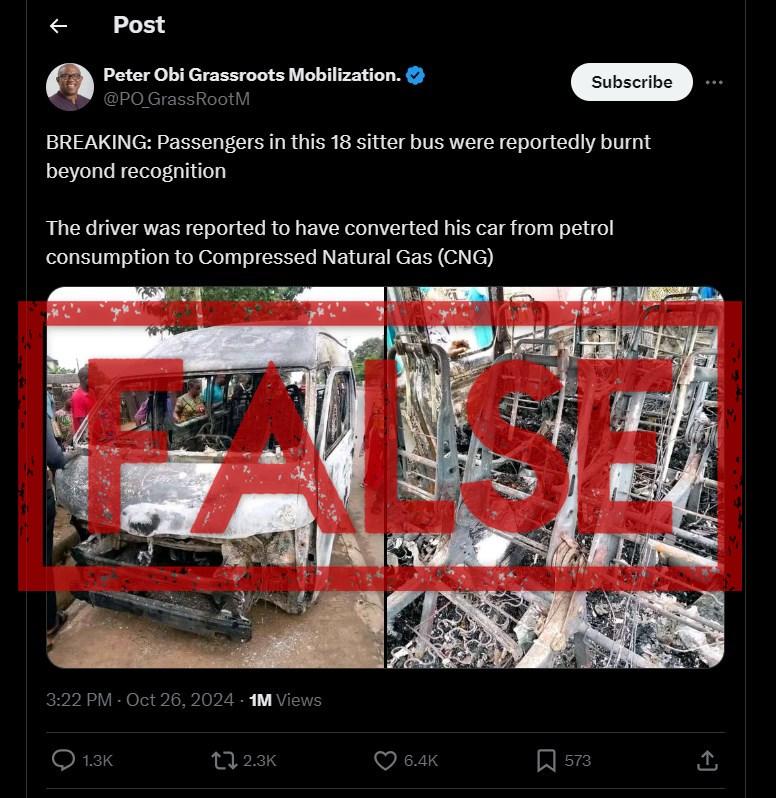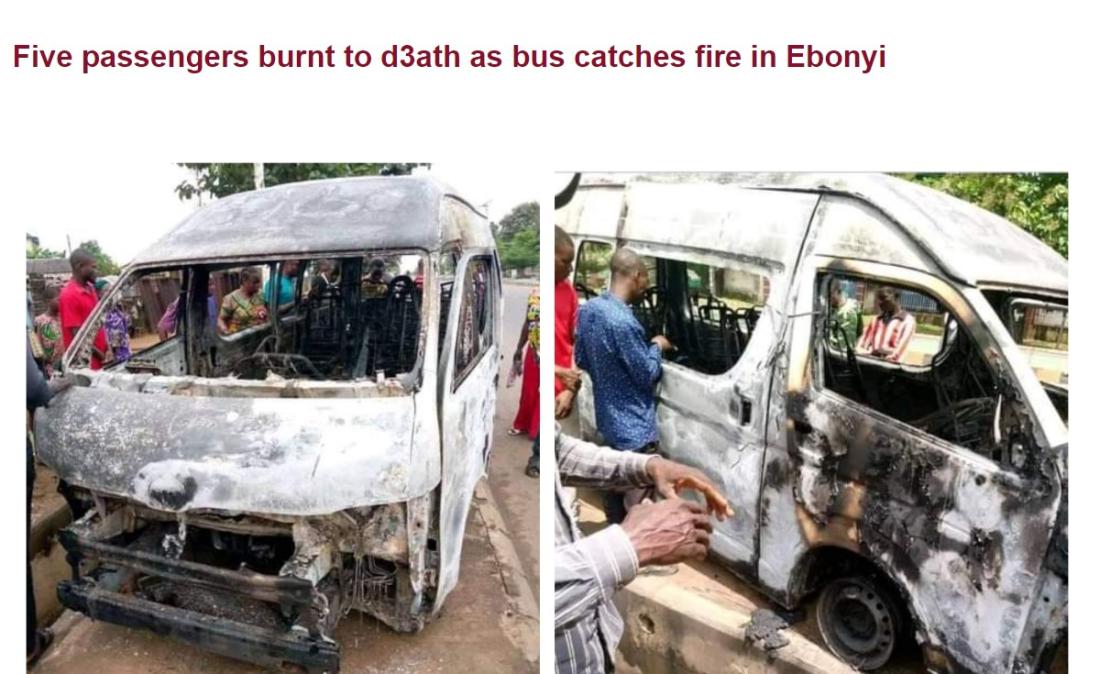
False posts claim bus running on natural gas killed 18 in Nigeria
- This article is more than one year old.
- Published on November 12, 2024 at 16:39
- 3 min read
- By Oluseyi AWOJULUGBE, AFP Nigeria
“BREAKING: Passengers in this 18 sitter (sic) bus were reportedly burnt beyond recognition. The driver was reported to have converted his car from petrol consumption to Compressed Natural Gas (CNG),” reads the X post which has been shared over 2,000 times since it was first published on October 26, 2024.
The post also contains photos purportedly showing the shell of the burnt-out vehicle. However, there are no details specifying where the accident happened.

The claim has also been shared here on X and in other posts on Facebook here and here.
CNG for vehicles
Petrol historically has been subsidised by the Nigerian government. But President Bola Tinubu ended the petrol subsidy at his inauguration ceremony in May 2023 (archived here).
This resulted in a more than fivefold increase in the price of petrol (archived here).
To help citizens cope, the government offered discounted rates to car owners to convert their engines to become compatible with using CNG as fuel.
CNG is methane gas that is compressed. It is said to be a safer and cleaner source of fuel with reduced carbon emissions (archived here).
The compressed nature also means that it is lighter than air and disperses quickly into the atmosphere when spilt (archived here).
Safety remains a concern, though, especially after a vehicle converted to run on CNG exploded during refuelling in Edo, a state in Nigeria’s south-south. Authorities said the vehicle was using a substandard kit (archived here).
However, posts claiming to show evidence of a CNG-converted bus that exploded and killed 18 people are false.
Exaggerated death toll
A reverse image search of the photos attached to the X post led to a blog post published on October 25, 2024 (archived here).
Information contained in the article shows that the accident occurred in Ebonyi state in southeastern Nigeria.
The article also contained pictures of the accident similar to the ones attached to the false social media posts.

Joshua Ukandu, the police spokesperson in Ebonyi, told AFP Fact Check that the vehicle ran into obstacles on the road placed by a maintenance team renovating bad sections, and burst into flames.
Ukandu said there is no evidence the bus ran on CNG.
“We do not have any formal confirmation of the type of fuel the vehicle used,” he said.
“To also clarify, five people died on the scene and two others died at the hospital so it is false to say all the passengers died in the accident.”
The Presidential CNG Initiative that coordinates the CNG campaign for the Nigerian government also denied the claim that the bus ran on CNG.
There is no evidence that the vehicle ran on CNG.
— PCNGI (@PCNGInitiative) October 27, 2024
No vehicle will explode due to properly fixed CNG at certified centers.
The Presidential Compressed Natural Gas Initiative strongly condemns the false information circulating on social media aimed at discrediting the… https://t.co/HpoXHMVDcQ
In a statement published on X, it said no vehicle would explode after having properly fitted CNG engines at the certified centres (archived here).
Copyright © AFP 2017-2026. Any commercial use of this content requires a subscription. Click here to find out more.
Is there content that you would like AFP to fact-check? Get in touch.
Contact us




